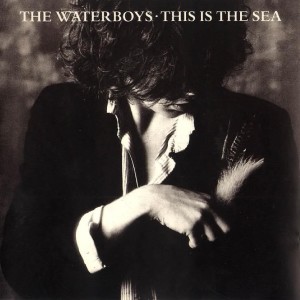 Steve Stewart began brewing beer at the age of 16 from simple retail kits. He soon progressed to more complicated brews. Discovering that he could undertake a degree in brewing at university, there was no turning back. After spending some time in the brewing industry, Steve together with his wife Jo have now turned a two-person business into one employing twenty people.
Steve Stewart began brewing beer at the age of 16 from simple retail kits. He soon progressed to more complicated brews. Discovering that he could undertake a degree in brewing at university, there was no turning back. After spending some time in the brewing industry, Steve together with his wife Jo have now turned a two-person business into one employing twenty people.
When I explained to Jo that I wanted to pair great Scottish beers with great Scottish music she kindly sent me a few of The Stewart Brewing Company’s beers to sample. I’ll return to the others at a future date, but first off I was tempted by their Cauld Reekie stout.
I suspect that we are going to require a bit of etymology before we go any further. ‘Cauld’ is the Scots word for cold and ‘Auld Reekie’ – meaning ‘old smokey’ is an affectionate name for Edinburgh, Scotland’s capital city. And served chilled, this pitch black, smokey stout lives up to its name. Poured into a pint glass, the beer has a large beige head which dissipates quickly to a light lacing. On the nose, it is malt and chocolate and a whiff of smoke. In the mouth it is a fruit and soot sandwich, with a touch of liquorice and a long, lingering finish. A great beer for a cold winter night but I’d happily drink it at any time of year.
 Edinburgh is a city for thinkers, artists and dreamers. Growing up in the Edinburgh suburb of Portobello, Mike Scott, Waterboys main man, could not have failed to have been inspired by the grandeur of the open spaces of the New town and atmospheric, narrow streets of the Old Town. Scott kicked off his musical career with local bands The Bootlegs and Another Pretty Face before forming The Waterboys who released their first single and album in 1983. Second album, A Pagan Place, featured the song “The Big Music” in which Scott sings: “I have heard the big music and I will never be the same”, and big music became a Waterboys hallmark.
Edinburgh is a city for thinkers, artists and dreamers. Growing up in the Edinburgh suburb of Portobello, Mike Scott, Waterboys main man, could not have failed to have been inspired by the grandeur of the open spaces of the New town and atmospheric, narrow streets of the Old Town. Scott kicked off his musical career with local bands The Bootlegs and Another Pretty Face before forming The Waterboys who released their first single and album in 1983. Second album, A Pagan Place, featured the song “The Big Music” in which Scott sings: “I have heard the big music and I will never be the same”, and big music became a Waterboys hallmark.
By 1985’s This Is The Sea, the big music had been firmly established. Opening track “Don’t Bang The Drum” begins with a distant trumpet over rolling pianos, building tension until drums, bass and guitar crash in, Scott’s whooping vocals conjuring widescreen vistas. “The Whole Of The Moon” sees the mystical in the mundane and “This Is The Sea” soars, searching for infinity beyond the shore. With just a little bit of compromise, Scott could have morphed The Waterboys’ music into arena rock but instead he hired a fiddle player, decamped to Ireland and took The Big Music into a new Celtic direction, leaving world domination to Simple Minds and U2.
If you get the opportunity, crack open a bottle of Cauld Reekie, crank up This Is The Sea and dream hard.
Written by John Scott

